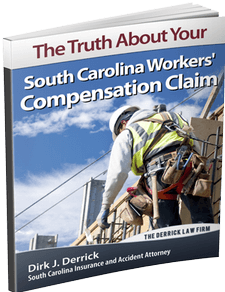Compensable Work-Related Gun Injuries
You might be eligible for workers’ comp benefits for a gunshot injury if:
- Your job duties involve the handling or transport of money, and you were shot during a robbery.
- You travel for work purposes and suffer a gunshot wound in a hotel or other establishment where you would not be if you weren’t working.
- A colleague is carrying a loaded gun that accidentally goes off and shoots you.
- You work in retail or another sector that requires contact with the public. An angry, disgruntled, or mentally unstable customer shoots you while you’re working.
- A colleague with whom you have a disagreement shoots you at work.
- A vendor, salesperson, or other party doing business with your employer shoots you on the job.
- An active shooter comes into your workplace and shoots you at random.
In such cases, as long as you do not initiate the violence that caused your injury, you might be entitled to benefits, but your employer’s insurance company will likely look for ways to dispute your claim in order to save money.
Non-Compensable Work-Related Gun Injuries
You’re generally not eligible for workers’ comp benefits if:
- You were shot when you were off the clock for your lunch break or in the parking lot before or after work.
- While traveling for work purposes, you choose to stop for drinks at a bar, where you then suffer a gunshot wound.
- You have a disagreement with someone on the job who waits until you are on your way home and shoots you once you’ve left the workplace.
- An irate spouse, partner, or other acquaintance who does not work with you comes to your workplace and shoots you there for personal reasons.
- You intentionally injure yourself on the job.
- You’re injured while under the influence of drugs or alcohol.
- You’re hurt while committing a crime.
- You initiate the exchange of gunfire by shooting first at the party that injures you.
In most circumstances, your employer’s insurer is likely to insist that your gunshot injury falls into the non-compensable category so that it can deny your claim. When this happens, the complex process of proving that your injury is compensable generally requires the services of an experienced workers’ comp lawyer.
What a Successful Claim Entitles You To
If your claim for benefits after a gunshot injury is successful, workers’ comp should pay all your medical bills and reimburse two-thirds of the wages you lose while off work for treatment and recovery. You don’t have to prove that any negligence on the part of your employer caused your work-related injury, and you cannot be fired for filing a claim. Disability benefits and vocational retraining are available in some cases.
If you’re a dependent of an employee who dies due to a work-related gunshot injury, you may file a claim for workers’ comp death benefits, which include funeral expenses and some related travel costs. Workers’ comp does not provide benefits for pain and suffering resulting from your workplace injury.
What If Your Claim Is Denied?
If your workers’ comp claim is denied, you may appeal the decision by requesting a hearing before the South Carolina Workers’ Compensation Commission (SCWCC). If your appeal is denied at the hearing, you have 14 days to request a Commission Review of your denied appeal. If your Commission Review is unsuccessful, your next step is to file an appeal in the South Carolina Court of Appeals within 30 days. In very rare cases, an appeal denied by the Court of Appeals might be reviewed by the state supreme court. Your attorney can help you meet all deadlines and satisfy the complex procedural requirements of the appeals process.
What to Do After a Gunshot Injury
If you were shot on the job, seek immediate treatment from the nearest medical facility. As soon as you can, report your injury to your supervisor and file your workers’ comp claim with a Form 50 (for injury) or a Form 52 (for the death of a loved one) from the SCWCC website. Your ongoing medical care must be provided by a doctor whom your employer’s insurer recommends. If your injury is serious or your claim is disputed, consult a workers’ comp attorney immediately.
When You Might Be Able to File a Third-Party Lawsuit
If the party who inflicted your gunshot wound in the workplace is not employed by the company or business for which you work, you may take legal action against that third party regardless of whether you receive workers’ comp benefits for your injury. If you do not receive workers’ comp benefits, you may sue the third party for your medical expenses, lost income, and pain and suffering.
If you do receive workers’ comp benefits for medical expenses and two-thirds of lost wages, you may not “double dip” by recovering twice your medical bills. A successful third-party suit, however, could award you the one-third of your lost wages that workers’ comp does not cover, as well as compensation for your pain and suffering, which workers comp does not provide. The services of an experienced lawyer are highly recommended to help you file a third-party lawsuit after a gunshot injury.

.jpeg) If you sustain an accidental work-related injury in South Carolina, you’re generally entitled to file a claim for workers’ compensation benefits. Common compensable work injuries include slip-and-fall mishaps, being struck by a heavy object,
If you sustain an accidental work-related injury in South Carolina, you’re generally entitled to file a claim for workers’ compensation benefits. Common compensable work injuries include slip-and-fall mishaps, being struck by a heavy object, 


